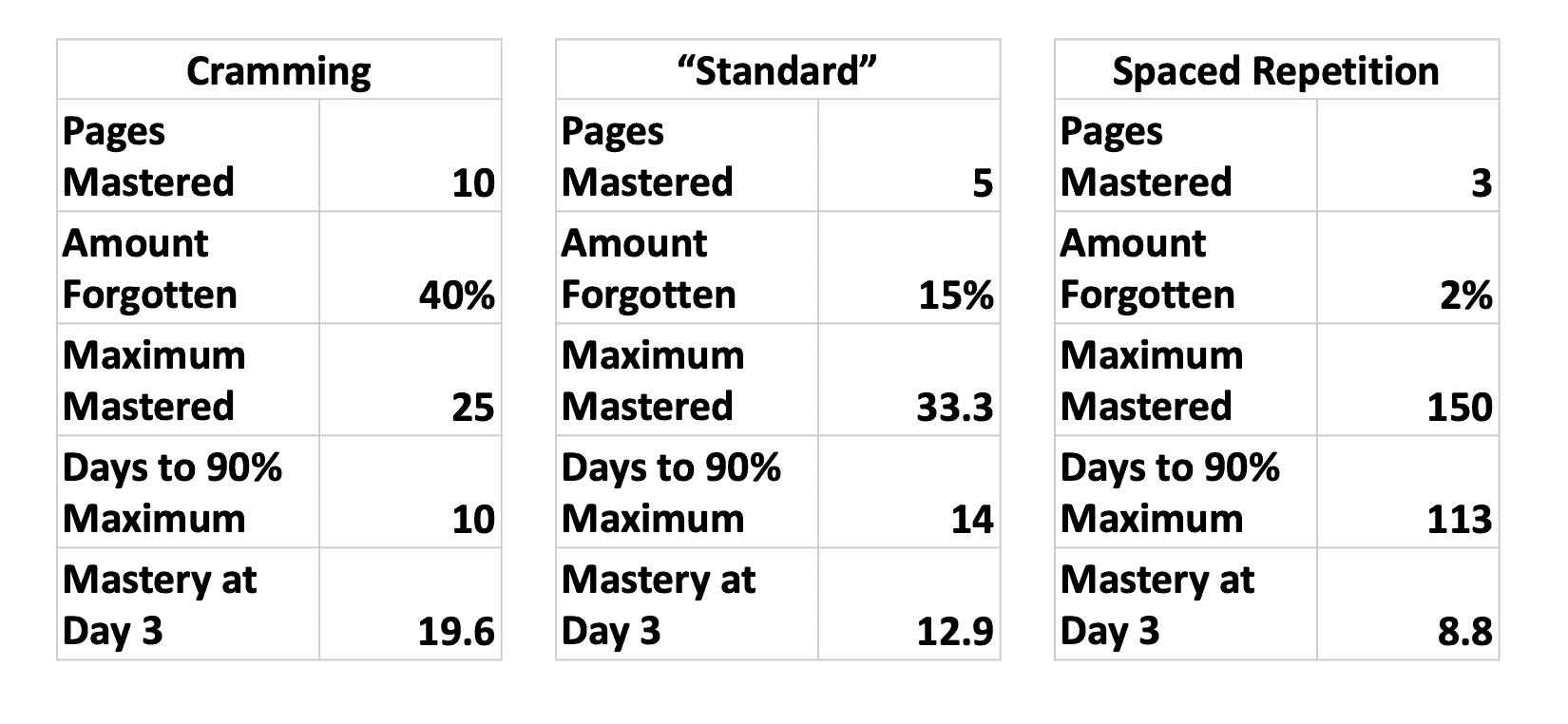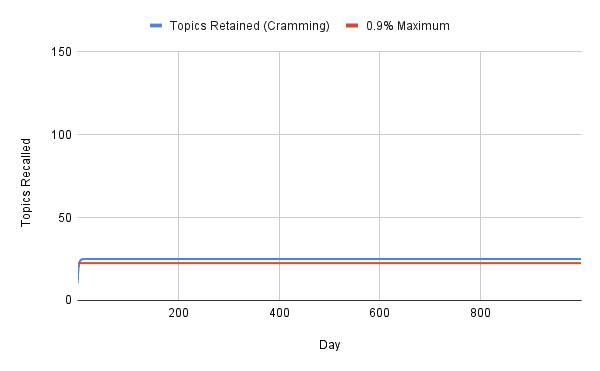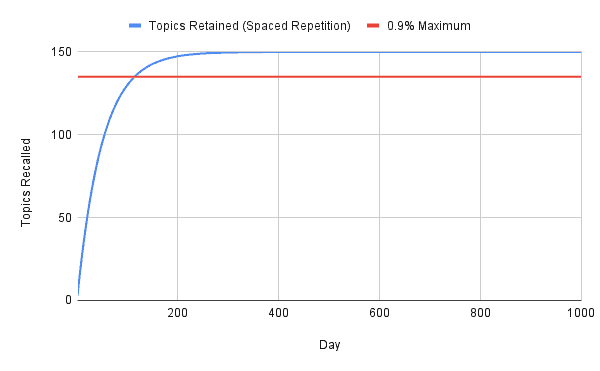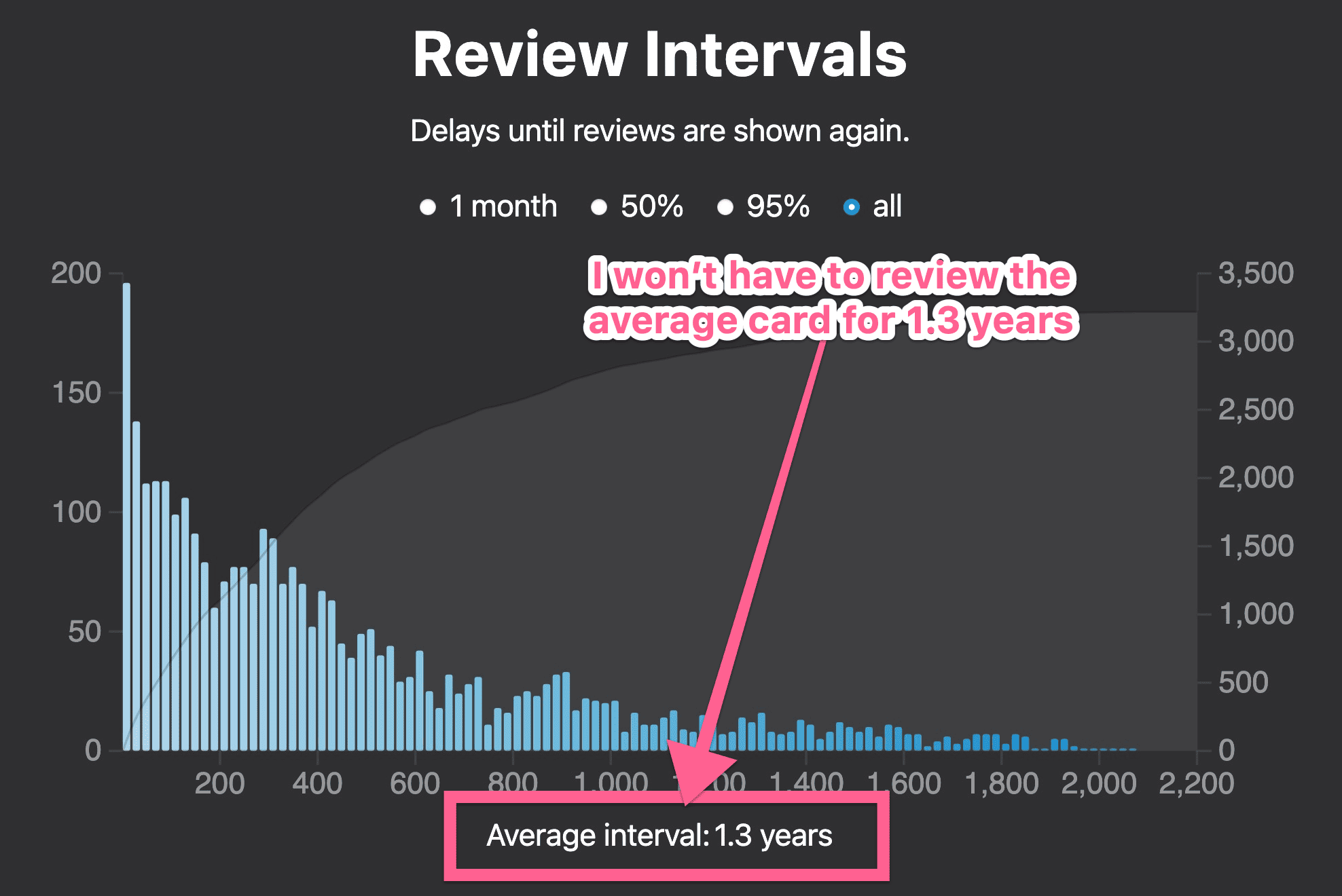
Every med student has asked how they can memorize everything in med school. Or, in our darker moments, it’s more like, “how can I possibly learn and remember everything I’m supposed to?” Med school has been likened to drinking from a firehose for a reason. The torrent of information necessary to learn – and the speed with which that torrent shifts topics – is dizzying.
Most of us have resigned ourselves to constantly feeling behind. Many of us have given up on excelling, focused only on survival. Yet, others are still determined to succeed at all costs.
Regardless of your goals, memorization – or retention more broadly – will be critical.
In this article, you will learn:
- Counterintuitive insights on how to remember everything important in med school,
- Why covering more every day can actually set you behind,
- How learning things well can actually improve both speed and retention,
- How much I have to study so that I never forget all the important things I learned in med school, residency, and beyond,
- The way to prepare so you never have to cram again, and
- Much more
The Counterintuitive Math of Memorization
Want to know how much you’ll end up memorizing in med school? All you need are two things:
- How much are you learning every day?
- What percentage of what you learn are you forgetting?
With those two numbers, you can predict the limits of how much you’ll memorize in med school.
How so? By using the equation:
Maximum Recalled = Amount Learned Per Day / % Forgotten Per Day
For example, if I memorized one thing daily and forgot 10% of what I’d learned, my maximum would be 10 things I could remember. Why? Because once I reached 10 items, the amount I forgot every day would equal the amount I was learning.
How Much Do We Forget Every Day?
Various studies have tried to estimate how much we forget every day. These estimates vary, with some suggesting we forget 50-80% of what we’ve learned within a day. However, there is broad agreement that:
We forget a large amount of what we learn, particularly soon after we’ve acquired it, and
How much we forget is a product of how we studied it and the techniques we use for retention
Cramming vs. “Standard” vs. Spaced Repetition
Using our equation for how much we can memorize, let’s consider three scenarios to see the best way to remember everything in med school.
Cramming: Learn More Faster, Forget More
Let’s consider cramming. In this case, we’ll assume that we can learn up to 10 pages of a book in a day and forget 40% of it. Note: we’re being pretty generous with cramming since it would be difficult to truly learn 10 pages of a book daily. Plus, my own experience suggests that I forget memorized material faster than 40%.
These numbers show that we would top out at about 25 pages learned in total. Again, this is because, at 25 pages learned, the amount we forget per day will equal the amount we cram (10 pages/day).
| Day | Topics Mastered | Amount Forgotten | Topics Retained (Cramming) |
|---|---|---|---|
| 1.0 | 10.0 | 0.0 | 10.0 |
| 2.0 | 10.0 | 4.0 | 16.0 |
| 3.0 | 10.0 | 6.4 | 19.6 |
| 4.0 | 10.0 | 7.8 | 21.8 |
| 5.0 | 10.0 | 8.7 | 23.1 |
| 6.0 | 10.0 | 9.2 | 23.8 |
| 7.0 | 10.0 | 9.5 | 24.3 |
| 8.0 | 10.0 | 9.7 | 24.6 |
| 9.0 | 10.0 | 9.8 | 24.7 |
| 10.0 | 10.0 | 9.9 | 24.8 |
| 11.0 | 10.0 | 9.9 | 24.9 |
| 12.0 | 10.0 | 10.0 | 24.9 |
| 13.0 | 10.0 | 10.0 | 25.0 |
| 14.0 | 10.0 | 10.0 | 25.0 |
We can see the same graphically.
“Standard” Approach: Learn It Better, Review When We Can
Most med students don’t INTEND to cram. Instead, many of us start with the intention of learning things well. We plan to review our notes so that we can remember them.
In this case, let’s assume that we could learn five pages daily and would forget 15% of it. In this case, we would top out at 33.3 as our maximum number of pages memorized. (5 pages per day / 0.15 = 33.3 pages maximum).
The same can be graphed here.
Spaced Repetition
You probably have already heard of spaced repetition and/or Anki. If you haven’t, the general idea is that you can maximize how much you retain by reviewing it before you forget it. And since the rate of forgetting decreases with every review, we can memorize an ever-increasing amount of information. Spaced repetition programs like Anki exist to remove our need to calculate when we need to do our reviews.
For more on using Anki in med school, see this article.
In theory, you should be able to remember just about anything forever. I’ve found this to be true in practice – more on my experience below. But to be conservative, let’s say that we DO forget things, albeit much less than the other methods – say, 2% per day. Because we have to do our reviews every day, we can learn less. To be conservative, we can assume we would cover 40% less than the standard technique – three pages per day.
Using spaced repetition, we would top out at 150 pages memorized. Note how this is substantially higher than cramming or the “Standard” approach. (Despite learning 70% and 30% fewer things daily, respectively!!).
Even if Spaced Repetition is Slower, You Will Know Much, Much More
Perhaps the most surprising finding here is that the SPEED of learning matters much less than the amount retained. In our cramming example, we are learning 10 pages per day, an insane rate. With spaced repetition, we could learn 70% less per day (only 3 pages daily). However, because our retention is 20x better – it’s likely much more than this – the amount we will ultimately know is 6x greater.

Spaced Repetition is Slower to Memorize, But Leads to Much Better Outcomes
This is the most surprising finding: despite moving through resources slower, you will still know much more by using spaced repetition due to the immense advantages in retention. In other words, you could cover many fewer UWorld questions per day, but still come out far ahead just by never forgetting what you’d learned from the QBank.
Limiting Beliefs
It would be unfathomable to memorize everything in med school without using a technique like spaced repetition. However, before jumping into spaced repetition, I had to confront some limiting beliefs about learning and retention. These beliefs were:
Limiting Belief #1: Covering More Topics Every Day Would Allow Me to Memorize More
I always thought it would be evident that the more I learned each day, the more I would know. So, in the same way, I assumed that running faster would lead to more distance covered; I would push myself to read more and more material.
Eventually, however, I was faced with the fact I was forgetting a ton and having to re-learn much of it. Faced with the uncomfortable math above, I focused on retention over how much I was learning daily.
What was my first limiting belief? The total amount I learned would be directly proportional to how much I covered – and how exhausted I felt – each day.
Limiting Belief #2: Memorizing – Rather Than Understanding It – Would Allow Me to Memorize More
A related belief I had that I had to overcome was that I needed to memorize more so I could cover more. Although naturally curious, I was uncomfortable slowing down long enough to learn anything.
In fact, I had a recurring thought early in med school: “this isn’t that important – I don’t need to know this.” And sometimes I was right! But then I skimmed the cell cycle to move on to other subjects more quickly. The result? I missed all of the (many) cell cycle questions on my midterm, dropping my grade an entire letter. As a result, I realized that the depth of learning mattered as much as “covering” more by memorizing.
The truth is that by understanding more, I could often memorize more, as well. For example, let’s say I take the time I understand the pathophysiology of pain in myocardial infarction. As you know, the ischemic pain stems from the blockage of an artery and subsequent hypoperfusion of downstream tissue. Knowing that helps me with many analogous conditions involving ischemic, from a pulmonary embolism to peripheral vascular disease, ischemic colitis, etc. In other words, by understanding the mechanisms involved, I had to use the concepts that I would otherwise just be trying to memorize. By using them in context, I solidified the memory further.
Limiting Belief #3: Cramming in the Days Before a Test Would Help Me
One other limiting belief I had to overcome was the idea that cramming before a test was necessary. It’s such a natural idea – that I would have to study more intensely in the days leading up to a test. I never questioned it.
However, let’s consider the math of retention again. You’ll learn most of what you know long before you get to the “cram” period.
That’s not to say that studying in the days leading up to a test can’t help. However, I found over time that I didn’t need to change my approach in the days leading up to each exam. In fact, for Step 1, I didn’t study for the week before my test. This was partly due to my burnout. However, I also knew preparing the week before my exam would do little to change the outcome. Reaching the point of that kind of confidence also may help reduce anxiety.
Spaced Repetition Helps You Memorize Everything in the Least Amount of Time Possible
I have made cards since the second quarter of my first year of medical school. At the time of writing this, it was nearly 19,000 cards. However, to remember all that information, I only need to study roughly an hour a day.
Let that sink in for a second. To remember virtually everything necessary I learned in med school, residency, and beyond, I only have to study for an hour a day.
How Can You Remember Everything (Important) by Studying a Few Hours a Day
How is it possible that I can study only about an hour a day and remember the vast majority of what I’ve made cards on since 2009? Because of the power of spaced repetition.
You are likely familiar with the promises of spaced repetition/Anki. In case you’re not, here’s the brief summary. In the case of Anki and many implementations of spaced repetition, you create a flashcard that you will review later.
The first time you review the card, you will see it again the next day. However, when you see it the next day, something magical happens. Instead of reviewing it in a day, the amount of time it takes to forget it increases – often double the amount of the previous interval. As you do this more, the time between reviews continues to grow.
This is how I can have 19,000 cards and only have to review ~120/day. In addition, many of the cards I’ve made have intervals numbering in the years. In fact, the average card I’ve made has an interval of 1.3 years, meaning I will only have to review the “average” card once every 1.3 years.
The power of the increasing interval between reviews is the secret behind how you can memorize everything important in med school.
Spaced Repetition is Powerful… What’s the Catch?
Spaced repetition is like dynamite – incredibly powerful in the right hands. However, it can also cause you to self-destruct.
A word of caution to those who will jump headlong into memorizing a laundry list of med school facts:
Garbage In, Garbage Out (GIGO)
People memorize random facts and details without understanding them. Then, on the USMLEs or with actual patients, many med students and even doctors struggle to put it together.
Students’ cards that don’t force them to think things through or make connections only reinforce mindless behavior. They struggle when they need to have deep thoughts or apply actual concepts.
The biggest mistake I made early on with Anki was that I thought that memorizing the information was enough. Yes, med school exams tend to focus on rote recall of facts. However, in the real world – and on the USMLEs/Shelf exams – the focus is much more on applying critical clinical concepts. Therefore, to solve these more challenging problems – and enjoy medicine – you must spend the time learning it well in the first place.
This focus on mastery over memorization is particularly important if you need to re-learn much/everything for Step 1. You will move much faster if you take the time to learn things – and never forget them – rather than speeding through and cramming UWorld questions.
Concluding Thoughts: How Can You Guarantee Success in Medical School?
I recently heard a great quote: “I prefer games where if you wait, you win.” Humans naturally gravitate towards immediate gratification. We are more concerned with WHEN we might be successful. This thinking is what often leads us down the path toward cramming and memorization.
Instead, why not focus on finding processes that would virtually guarantee your success if you were to do them consistently?
In the context of medicine, nearly limitless retention is a superpower. If you combine this with the diligence of learning (read: mastering) something new every day, there should be no limit to what you can learn.
Paradoxically, I became successful on my exams much faster than I anticipated when I slowed down and focused on mastery and retention. I hope that you can learn from my mistakes.
What do you think? Does it seem strange that you could learn more by covering less daily but retaining more? Let us know in the comments!











